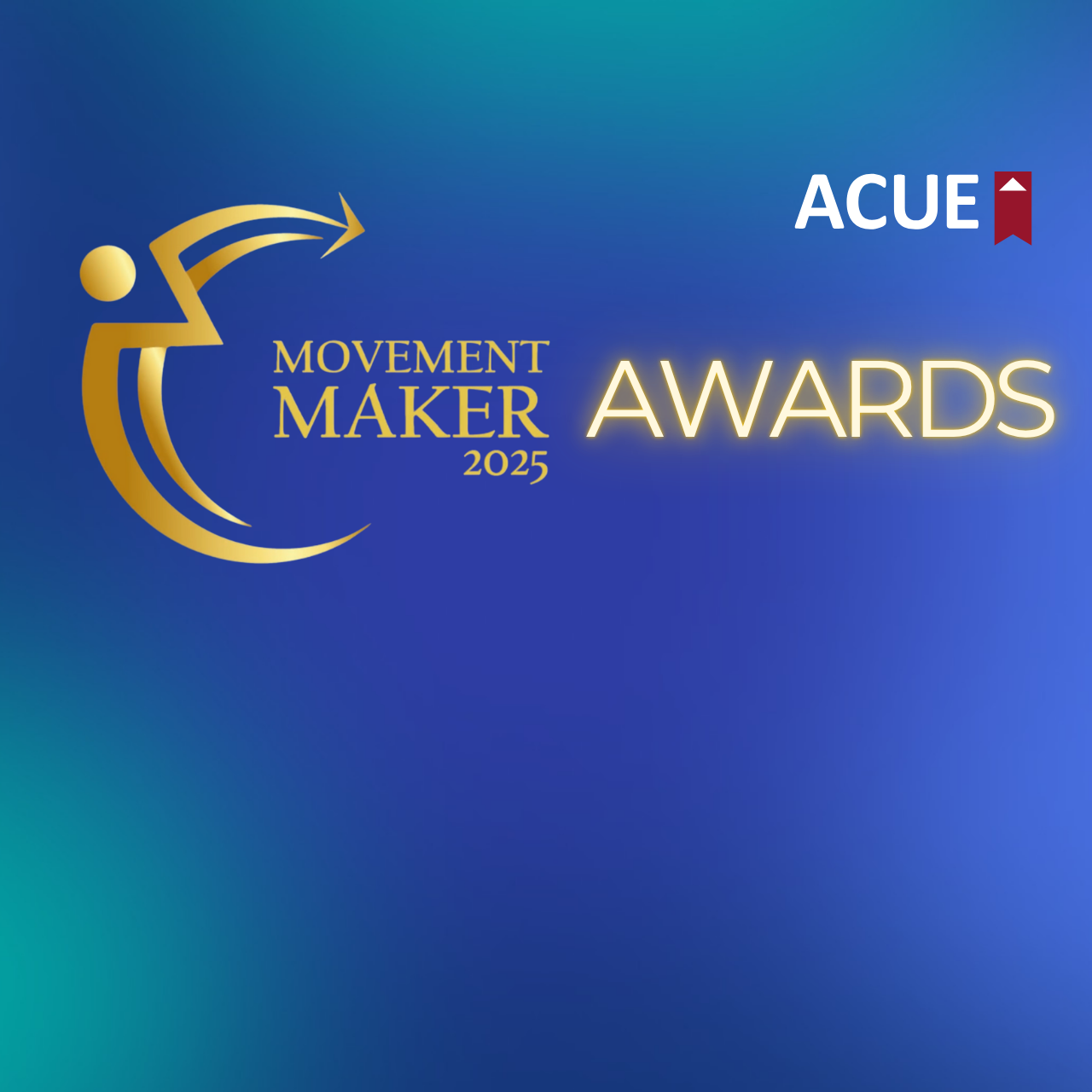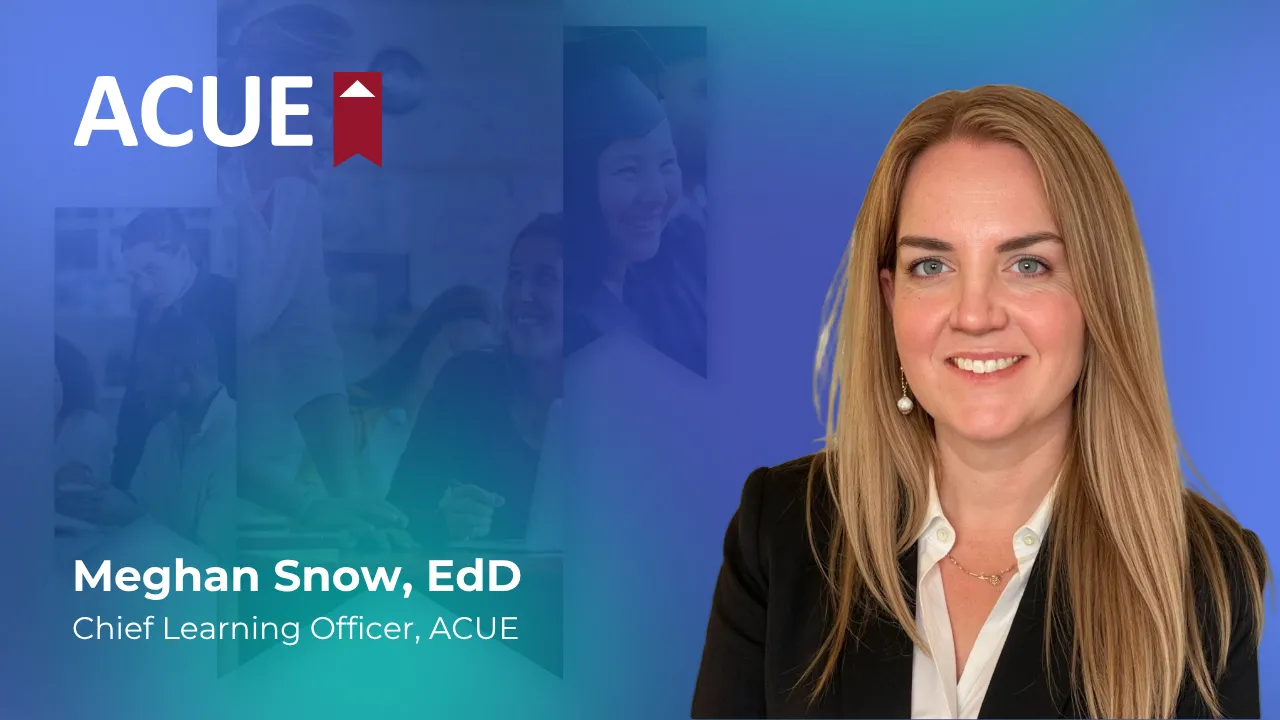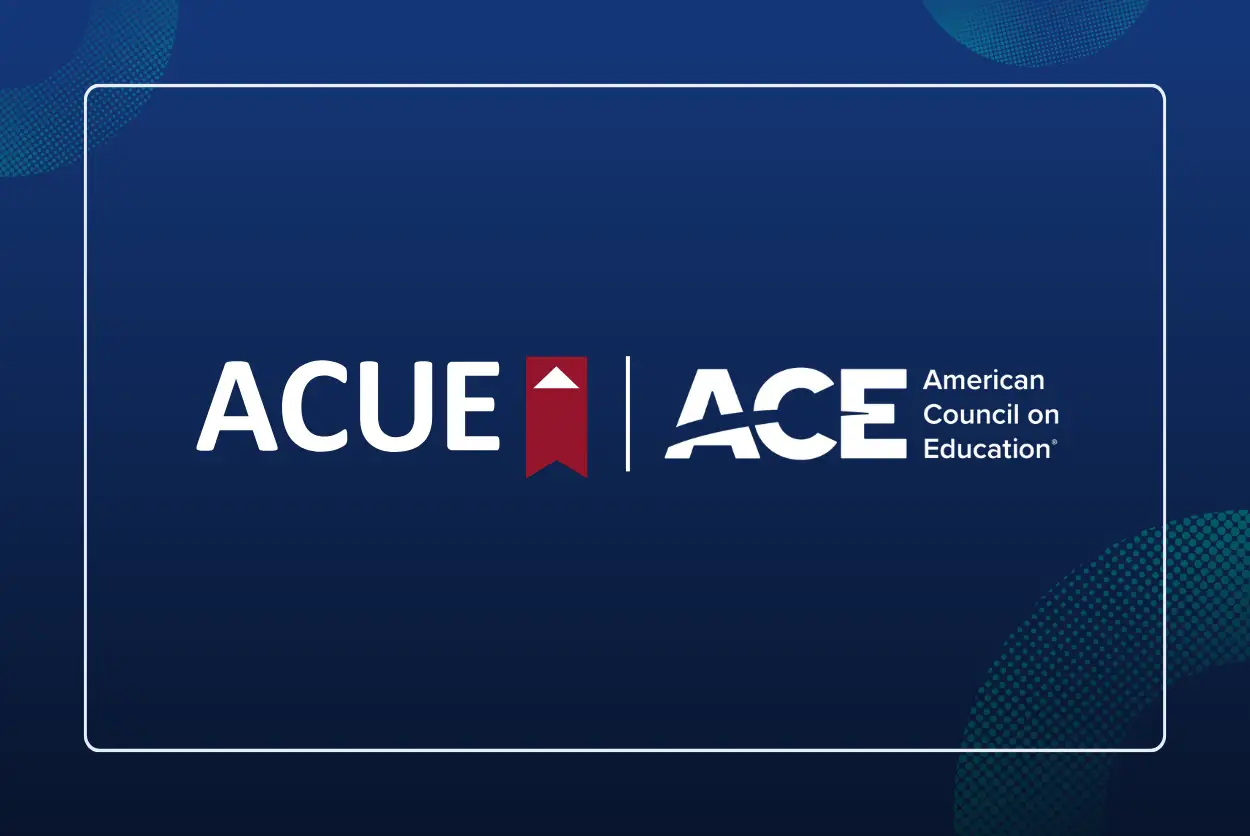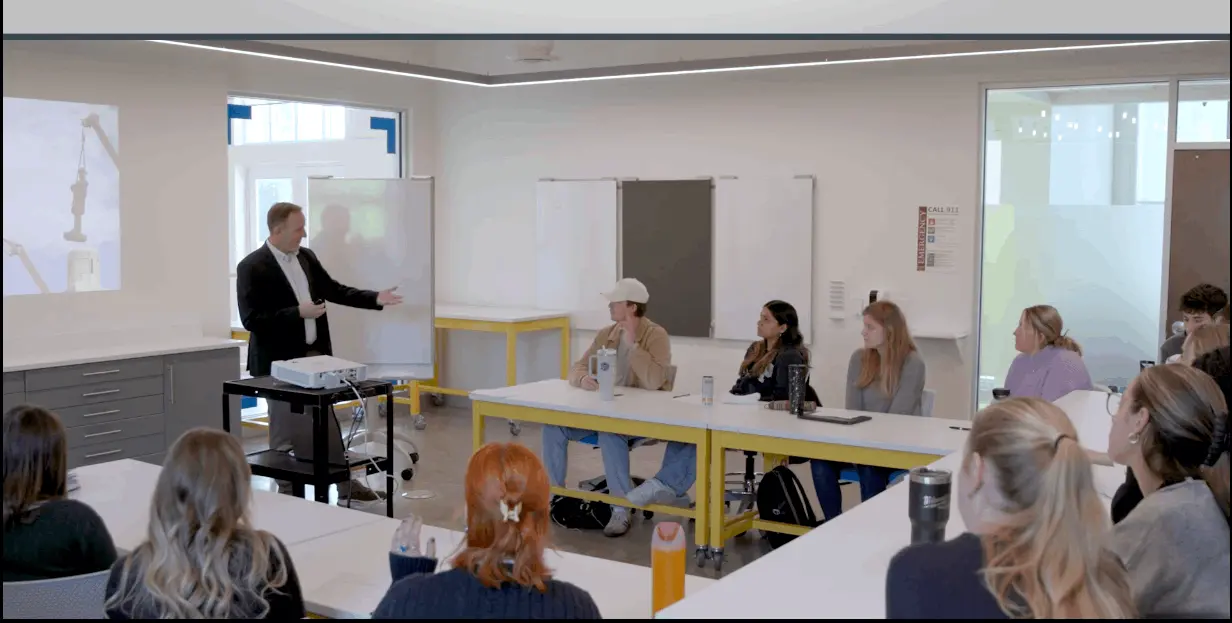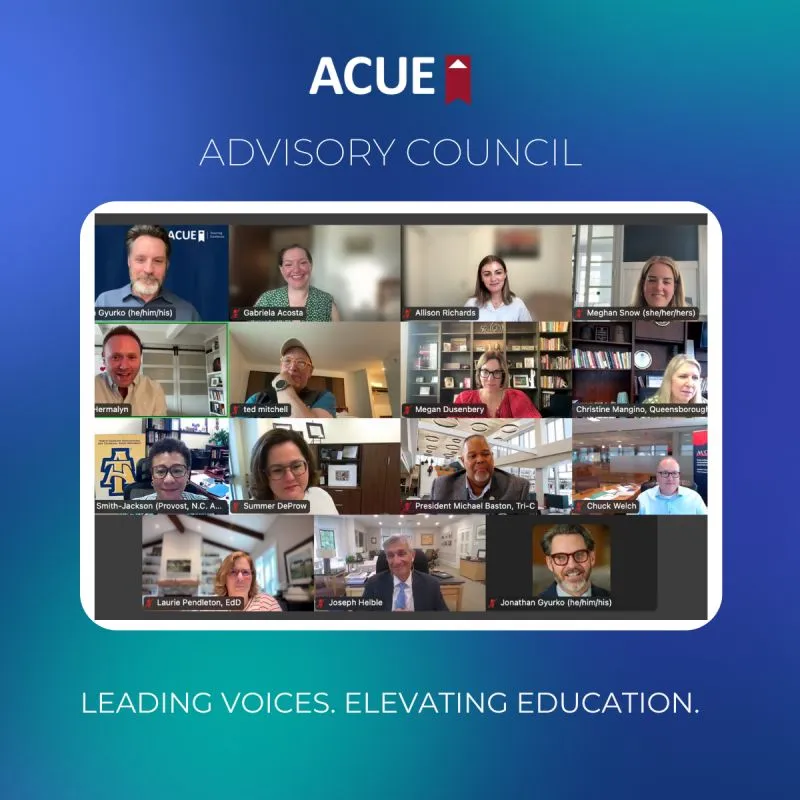Since the emergence of generative artificial intelligence (AI)—most notably ChatGPT—the general discourse in higher education has been a tale of conflicting opinions as many institutional leaders and faculty contend what the tool means for student success. Some worry its disruption will give way to academic dishonesty and lack of student comprehension, while others believe it could be the next step in revolutionizing learning, increasing efficiency, and creating innovative learning opportunities that could better emphasize the learning process rather than outcome.
As educators and leaders at college and universities respond to students’ use of this transformative technology, the question remains: how can AI learning and ChatGPT help innovate student learning and what buy-in needs to take place to best leverage these emerging tools in an effective and ethical way?
To learn more about generative artificial intelligence (AI) and its impact on higher ed, register for the Association of College and University Educators (ACUE) webinar on May 9.
The Early Indications: Teaching and Learning with ChatGPT
Developed using a breakthrough AI technology, the ChatGPT chatbot acts as a word predicator with a “large language model” that has been trained on enormous amounts of information and data and “generates new texts by making statistical predictions about what should come next based on its training data,” states Dr. Julia Staffel, an associate professor of philosophy at the University of Colorado Boulder.
“It can write you stories, cooking recipes, screenplays, suggestions for how to decorate your living room,” Dr. Staffel shares in a ChatGPT explainer video she posted to YouTube earlier this year. “But it can also write the sorts of essays that we ask our students to write in our classes,” she warns. Given these capabilities, thousands of instructors and administrators have reported their concerns since ChatGPT was released to the public in November 2022, especially in response to the platform’s growing popularity.
Early research suggests that generative AI is said to have the greatest impact on teaching and learning within higher education. Undergraduate teaching, teaching and learning centers, faculty development, and graduate teaching are the most frequently cited areas of an institution already affected by AI, according to an EDUCAUSE QuickPoll of 1,000 faculty, staff and leaders in early February. Yet those responsible for providing instruction—faculty—expressed the most pessimism towards AI, the poll found.
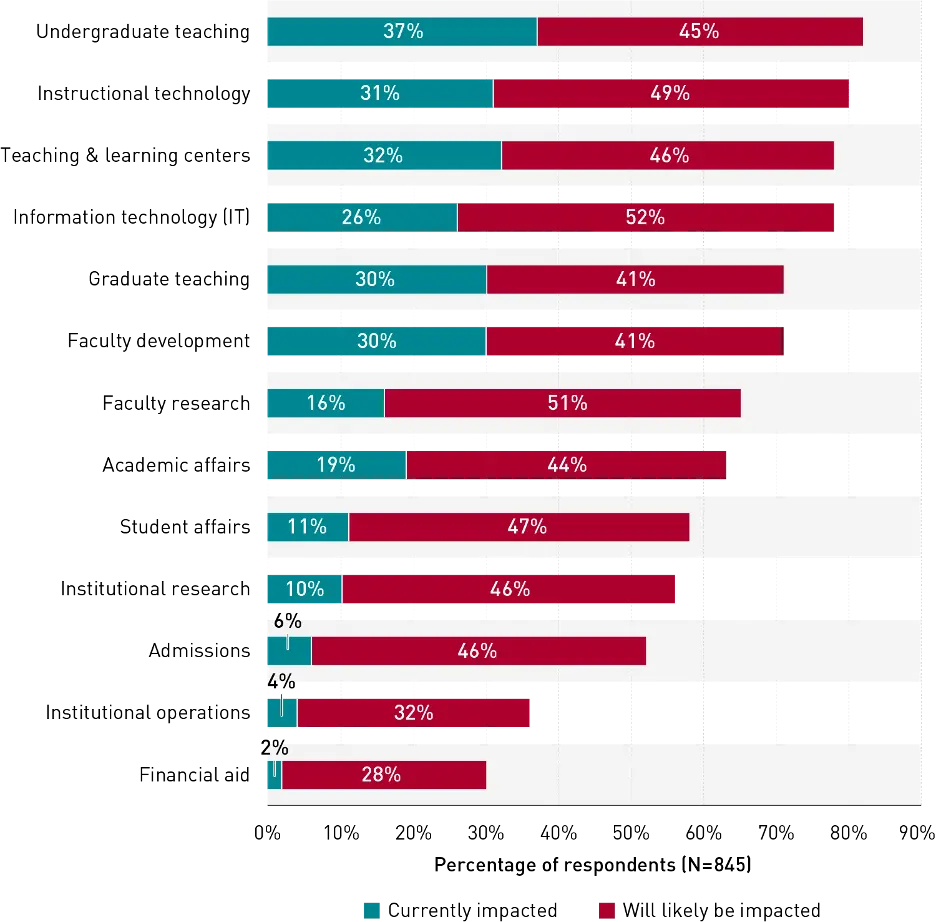
Despite faculty reluctance or hesitance to embrace ChatGPT, students continue to use the tool to “fast-track assignments, brainstorm ideas, get unstuck as they start writing, receive help solving problems, and otherwise experiment with ChatGPT as a learning tool,” a Tyton Partners article reports. As a result, instructors and institutional leaders must be sure to set clear guidelines and policies to ensure AI tools are effectively used for learning enhancement.
Insights for University Administrators
While much is still unknown about ChatGPT and other generative AI systems, many argue that ignoring its presence—and popularity—is perhaps the worst thing to do. Instead, experts are calling for faculty and administrators to experiment with when and how the new technology can inform both teaching pedagogy and the learning experience.
As subject matter experts, instructors, and those responsible for academic affairs, student services, or institutional planning, experts say there are several considerations that must be immediately addressed:
- Establish clear expectations for students’ use of ChatGPT and other AI tools.
- Provide sourcing and citation guidance for students using ChatGPT and AI tools in their work.
- Provide intentional communications about how ChatGPT will be incorporated into academic integrity policies.
When regulated and integrated into the classroom correctly, ChatGPT can be harnessed to promote student learning and even help facilitate lecture organization. However, in addition to setting clear boundaries and guidelines for AI use in the classroom, it’s also crucial to open the conversation and include all relevant stakeholders.
Including Faculty in the Conversation About ChatGPT
The stark difference in opinion on ChatGPT is a reminder that faculty must be part of the conversation about AI and ChatGPT on campus. “Faculty must be involved and prepared to learn how to leverage the technology to advance student learning—and how they might need to adjust their instruction to ensure students aren’t cheating themselves out of authentic opportunities to learn,” says Dr. Penny MacCormack, chief academic officer at ACUE.
As the use of ChatGPT becomes widespread amongst students, there exists an opportunity for institutions to engage faculty in addressing the potential benefits and challenges associated with new technologies such as generative AI. Ultimately, as stewards of the teaching and learning process, faculty—and their challenges, triumphs, and experiences—remain central to how communities within the higher education ecosystem will move forward in regards to AI learning tools.
ACUE AI Webinar Panelists and Experts
Many institutional leaders, such as Sunem Beaton-Garcia, president of Chippewa Valley Technical College in western Wisconsin, have navigated ChatGPT successfully. In fact, President Beaton-Garcia has sought to embrace AI tools right away as a way to increase student engagement and boost skills and training needed to implement AI effectively in higher education.
Similarly, Greg Jordan, president of SeligoAI, has experienced how ChatGPT can positively impact student support systems, such as admissions and enrollment funnels as well as student advising. As president emeritus of King University, Dr. Jordan is an expert in using AI-driven data analytics in support of student relationship management and individualized learning.
Dr. Julia Staffel, an associate professor of philosophy at the University of Colorado Boulder, created a ChatGPT explainer video for educators and leaders in higher education who were beginning to grapple with the rapid emergence of generative artificial intelligence (AI). Her explanation helps to contextualize the benefits and the barriers to learning from a faculty perspective.
On May 9, Dr. Sunem Beaton-Garcia, Dr. Greg Jordan, and Dr. Julia Staffel will join ACUE and share their experiences with ChatGPT and address the ways in which AI can be used to positively impact teaching and learning.
Continued Reading on ChatGPT in Higher Education
Generative AI in higher education: From fear to experimentation, embracing AI’s potential: Tyton Partners leaders reflect, report, and project their findings on the impact of ChatGPT since its emergence into higher education.
How to worry wisely about artificial intelligence: The Economist provides insight on what AI means for education, the workforce, and the fear and excitement surrounding it.
How AI is shaping the future of higher ed: Inside Higher Ed offers its take on how AI is reshaping many of the routine activities in higher education and how it can and will inform the future of higher ed.
ChatGPT: Post-ASU+GSV reflections on generative AI: Michael Feldstein, the chief accountability officer of e-Literate, contextualizes how AI will affect knowledge and skills production.
Where will generative AI lead?: Ray Schroeder of Inside Higher Ed conjectures on AI’s influence on the workforce, job security, and learning techniques.

